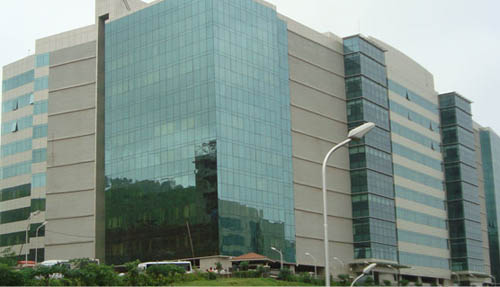
Innovative funding may work in Indian realty
Pranay Vakil: Kruti can you give some examples of innovative funding for the benefit of the panel? It is just to prove a point about how innovative that funding has been.

Pranay Vakil: Kruti can you give some examples of innovative funding for the benefit of the panel? It is just to prove a point about how innovative that funding has been.

This funding round featured participation from high-profile individuals such as Dr. Shriram Madhav Nene, Anmol Sood, Sahil Vachani, Managing Director and CEO of Max Estates, and Rohit Kothari’s Anchorage Capital Fund. Prominent angel investor Ritesh Malik and Ankit Mittal and his family office Sixth Sense Ventures Partners also contributed to the funding round, among others.

Shantanu Rastogi has invested in supporting ambitious entrepreneurs who are doing innovative work to serve the large Indian consumption basket. He has immense trust and belief in the your-space brand and its mission. On his recent investment in your-space, Shantanu Rastogi, said “There is a significant unmet need for safe, comfortable, convenient and affordable lodging & community spaces for 30M+ migrant undergrad and post-grad students in India. India being one of the largest suppliers of skilled talent across engineering, medicine, law, finance and several other professions to the world, needs high quality student housing operators to address this large and growing demand alongside high quality universities and institutions”

ZiffyHomes, a Gurgaon-based home rental marketplace has raised seed funding of INR 2 crore from Individual investors. The round was led by Bikky Khosla, Angel Investor and CEO at TradeIndia.com and Anirudh Agarwal, Managing Director at Shree Sharda Group. The duo will also join ZiffyHomes as Board Members to mentor the team for fast growth.

“How long can a sector survive which is borrowing at 48 per cent from private lenders to serve the interest of previous debt raised at much lower rate,” asks a banker. His concern is not without valid reasons. Developers experimented with all funding options but still many of them are now being forced to seek other sources of funding which not only comes at a significantly higher cost but also where the source of fund is unregulated.

Track2Realty Exclusive: Real estate has not just been innovative but also aggressive in raising money. They have raised money against sales with a guarantee that if the price falls, they will buy it back. It has been a protection on the bank’s side that if the prices fall, of course there is a margin of about 20% and if the prices fall more than that, they will buy back. 20% has been the cut off because about 10% is the expense in buyback, brokerages, paperwork etc.

Track2Realty Exclusive: The realty market has been pretty exposed to the greedy investors and vulture funding, not venture funding. In desperation the developers often lost track of what kind of funding was required and met with the disaster. Amidst the cyclic very high and very low there has been off balance debt-equity ratio as well. Of late, some developers tried within the box and some outside it. The needs and solutions are different for listed and unlisted companies. Still the sector is in search of right funding mechanism and as Track2Realty finds, are guinea pigs in the funding market.

Atul Modak: Why did bankers’ lobby not block the mutual funds then?
Pranay Vakil: Because the mutual funds lobby is larger than the bankers’ lobby. They could not do anything about it. The companies into mutual funds are so large, they might just foray into banking.

The median age of the country is likely to gradually increase from about 29 to 38 by 2050. Similarly, the proportion of aged people (above 60 years) is likely to increase from about 11% in 2024 to 21% in 2050. At the global level, over the next three decades (by 2050), of the 2.1 billion people above 60 years, India would account for a 17% share indicating a significant demand growth for senior care including housing in the country.

The residential sector is currently undergoing a bullish phase, characterised by a convergence of factors that foster an extremely favourable ecosystem. As we progress into 2024, we anticipate that both sales and new property launches will sustain the sector’s buoyancy. Despite the potential challenges posed by escalating land costs and limited funding options for early-stage projects, the robust underlying market fundamentals are expected to propel residential activity well above the average trend witnessed in the previous five years.
